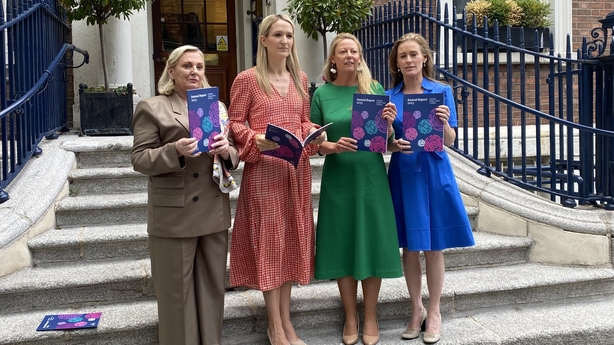There was a slight increase in the number of contacts made to the Dublin Rape Crisis Centre (DRCC) last year.
18,600 people contacted the 24-hour service in 2023.
It is the highest number of contacts in the centre's 45-year history and an increase of 200 on the previous year.
First time contacts accounted for 10,106 of people who sought help. That is a rise of over 800 on 2022.
71% of those who contacted the DRCC last year were female; 17.5% were male and 11% identified as other.
The largest cohort of those who gave their ages were in their 30s.
The highest proportion of callers to the National Rape Crisis Helpline sought support regarding a rape that had occurred in adulthood (40%).
The second most common reason for calling was to discuss child sexual abuse (34%), followed by sexual assault as an adult (17%).
Speaking at the publication of the DRCC's annual report, Minister for Justice Helen McEntee said the rising numbers show that more victims are coming forward, which is encouraging.
However, she said domestic, sexual and gender-based violence is an epidemic in society and more needed to be done.
Asked about the difficulty for victims who face the courts process, she said that work was required to ensure the justice system "doesn't retraumatise victims when they come forward".
She said that while laws had been changed "we’re not there yet".

In the report, DRCC's Chief Executive Officer Rachel Morrogh noted that 33% of new clients had reported an alleged sexual offence to gardaí.
"However, the pathway to justice can take years and the delays to trials starting caused great distress for clients. Further anxiety is caused by the fact our clients' counselling notes can be requested by law and this practice may be having a chill effect on people’s decision to seek justice or indeed deter them from receiving therapy and counselling to support their healing process," she said.
We need your consent to load this rte-player contentWe use rte-player to manage extra content that can set cookies on your device and collect data about your activity. Please review their details and accept them to load the content.Manage Preferences
For a second year, the DRCC has noted a "concerning trend" in the number of people disclosing mental health challenges through the helpline.
Callers felt they had nowhere to turn, which led to greater numbers of clients requiring longer periods of counselling.
A worrying and growing trend in 2023 according to the DRCC was the number of callers who reported suicidal ideation. 500 calls involved feelings of suicide.
The centre provided therapy to 497 clients last year, which was fewer than in 2022 (591).
This was mainly due to "recruitment challenges" according to the centre. However, it says a new cohort of therapists was recruited towards the end of the year.
National Helpline: 1800 77 8888







